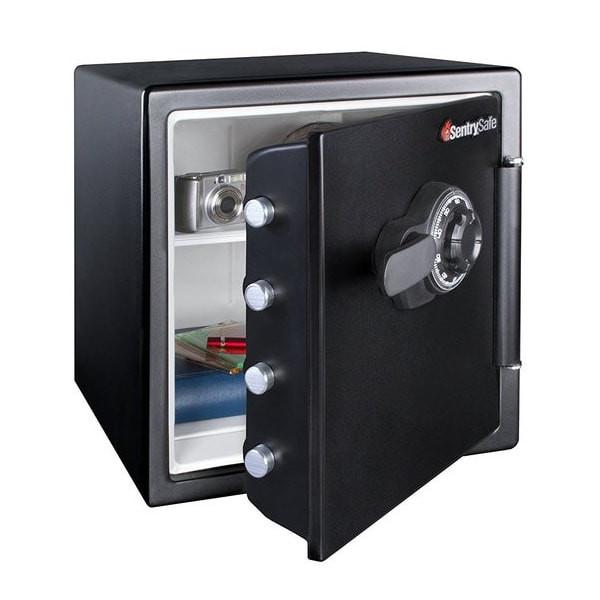Arbitration: An Alternative to Court for Resolving Retail Security Disputes
In the retail industry, disputes over security issues can be a common occurrence. From disputes between employees and employers to conflicts between customers and retail establishments, these security-related disputes can have a significant impact on the retail business's reputation, financial well-being, and overall operations.
Traditionally, these disputes are often resolved through court litigation, which can be a lengthy and costly process for all parties involved. However, arbitration is an alternative that can be used to settle these disputes quickly and effectively while reducing the costs and risks associated with court litigation.

Arbitration Explained
Arbitration is a dispute resolution process that involves an independent third-party arbitrator appointed by both parties to hear and decide on a dispute. Unlike court litigation, which involves a judge and jury, arbitration is a private process that is less formal and more flexible.
The arbitrator acts as a neutral mediator and considers the evidence presented by both parties before making a legally binding decision. One of the key benefits of arbitration explained by experts is that it can be faster and less expensive than court litigation, making it an attractive option for resolving disputes in the retail industry.
Examples of retail security dispute
After explaining the arbitration process, let's explore how it can be applied to resolve retail security disputes. These disputes can take many forms, including the following examples:
Employee Theft:
An employee is caught stealing merchandise from their employer's retail store. The employee denies the accusation, and a dispute arises over whether the employee did steal from the store.
False Accusations:
A customer claims they were falsely accused of shoplifting by a retail store's security personnel. The customer denies the accusation and argues that they were unjustly treated by the store's security team.
Personal Injury:
A customer slips and falls in a retail store and sustains an injury. The customer claims that the store was negligent in maintaining safe conditions, while the store argues that the customer was not paying attention and was responsible for their own injuries.
These types of disputes can be time-consuming, expensive, and stressful for all parties involved. Arbitration can offer a quicker, more cost-effective, and more private way to resolve these disputes and move forward.
Benefits of Arbitration in Retail Security Disputes
Faster Resolution
One of the primary benefits of arbitration in retail security disputes is that it's often faster than court litigation. In many cases, disputes can be resolved within a few months of filing a claim, while court cases can take years.
It can be particularly important in the retail industry, where disputes can impact daily operations and damage the business's reputation. With arbitration, retailers can resolve disputes quickly, allowing them to focus on their core business activities.
Lower Costs
Arbitration is often less expensive than court litigation according to the ABA. The costs of court litigation can quickly add up, including attorney fees, court fees, and other legal expenses. In contrast, arbitration fees are typically lower, and the process is less formal, reducing the overall costs of dispute resolution.
It can be particularly important for small and medium-sized retailers who may not have the resources to handle the costs of court litigation.
More Flexible Process
Arbitration is also a more flexible process than court litigation. Parties can agree on the procedures and rules that will govern the arbitration process, allowing them to tailor the process to their specific needs.
For example, parties can agree to have a single arbitrator or a panel of arbitrators and can agree on the timeline for resolving the dispute. This flexibility can be valuable in the retail industry, where disputes can be complex and require a tailored approach to resolution.
Confidentiality
Arbitration is usually a private process, and the proceedings are confidential. It means that parties can keep the details of their dispute and the resolution confidential, which can be particularly important in the retail industry, where negative publicity can have a significant impact on a business's reputation.
Confidentiality can also encourage parties to be more open and honest in their discussions, leading to a more effective resolution.
Conclusion
Arbitration can be a valuable alternative to court litigation for resolving retail security disputes. It offers a faster, more flexible, and less expensive process that can help retailers resolve disputes quickly and efficiently. With confidentiality and the ability to tailor the process to their specific needs, arbitration can be an effective way to resolve complex disputes in the retail industry.
As retailers continue to face security-related disputes, arbitration can be considered a viable option for resolving these disputes and maintaining the integrity of their business.
Extra Security Precautions that Retailers can take
Cash Security
We always recommend Counterfeit Money Detectors to protect your business from fake money.
Security Cameras
Retail Security Cameras can help cover your bases in case a lawsuit ever comes up. They can give you evidence to show your side of the store in a retail security dispute.




Leave a comment